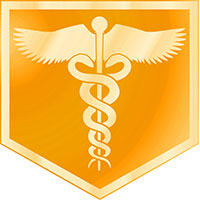- Home
- What are clinical trials?
-
Pre-Clinical Phase?
This stage of research is done before testing in humans, and is designed to test the major safety profile of the drug.
-
Phase I
In phase I studies a small number of healthy volunteers or patients suffering from cancer and have no therapeutic options remaining are given a new experimental medication. Although it is hoped the medication will help these patients, the phase I study also allows investigators to determine if the drug is well tolerated in humans.
-
Phase II
A phase II study is larger than a phase I study and is performed if the phase I study suggests the experimental medication is well tolerated and that it may help patients suffering from cancer. During a phase II study, patients suffering from cancer will be treated with the standard of care (if one exists) in addition to this new experimental medication.
-
Phase III
If the phase II study demonstrates encouraging results a phase III study will be organized. Phase III studies are very large world wide studies often exceeding over 500 patients. In a phase III study however, all the patients will be treated with the standard of care but only a portion (usually 50% or more) will be treated with the experimental medication. The rest of the patients will get placebo. Although at first this may seem unethical it is only these kinds of studies that truly demonstrate if an experimental medication actually works or not. Sometimes these trials allow for crossover (patients on placebo will be given the experimental drug as well) if the experimental medication shows a significant benefit. Often not even your doctor is aware as to whether you are getting the experimental medication or placebo. A positive phase III study showing a benefit for the patients taking the experimental medication are required for Health Canada and the FDA to approve the medication .
-
Phase IV
Phase IV studies are studies that are done to make sure that after the medication has been approved that it remains to be safe.
Why go on a clinical trial?
Well designed clinical trials with participation of many health care centres and more importantly patients are the backbone of successful stories in cancer. Indeed they are the reason why we have very good cure rates in a number of cancers including acute lymphoblastic leukaemia and testicular cancer.
Going on a clinical trial gives patients access to new medications that have demonstrated efficacy in treating cancer but that are not yet available and that are usually quite costly. New medications in Oncology are being produced at rates faster than ever before and some are having an unprecedented impact on cancer. For some patients going on a clinical trial will be the fastest and only way of getting access to these new medications.
-
Present Studies
See our list of ongoing studies
Read more -
Contact Us
-
Phone
(514) 800-2130
-
Email
Info@montrealclinicaltrials.com
-
6455 Beaubien E
Montreal, QC
-
Phone

